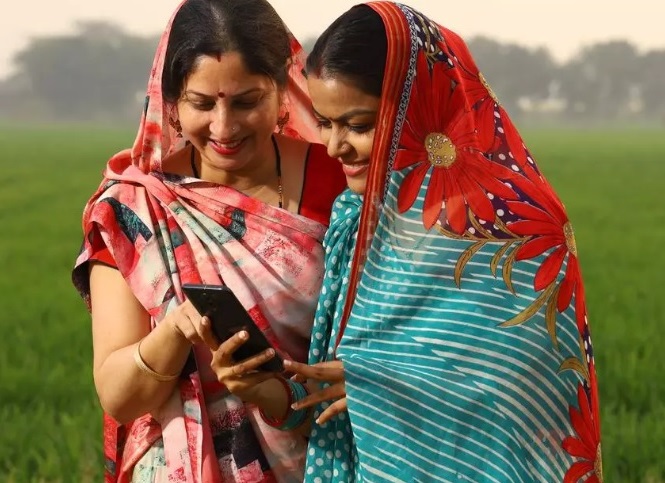Last Updated on April 22, 2024 12:35 am by INDIAN AWAAZ

By S N Verma
There is a great need to increase awareness in the digital sector among women, who constitute half of the country’s population. Due to lack of awareness in this area, most of the women are becoming victims of cyber crime. However, Digital Shakti was launched in June 2018 to help women across the country increase the awareness level in the digital sector.
According to the National Commission for Women, more than 3 lakh women have been trained in cyber security through this project across India. Have been informed about the consultation and understanding. But this number is very less and it is limited only to big cities. Women in cities of states like Bihar and Uttar Pradesh are far from this access. Whereas their population is more in these small towns and these women easily become victims of cyber criminals sitting far away.
First let us know what is digital power? Digital Shakti is a pan India project to digitally empower and skill women and girls in cyberspace. Digital Shakti is an initiative to empower women to stand against any inappropriate incidents that they may witness in the online space. The number of cyber crimes in India has increased rapidly in the last decade. Unfortunately, a large proportion of these crimes are committed against women. The main reasons for this are the huge gender discrimination prevalent in India and lack of digital knowledge. Another challenge is that most women victims of cyber crimes do not file complaints.

The common reasons behind this are either lack of support from family and law enforcement and lack of awareness among them. Although a specialized portal has been set up for cyber crime, many cases remain unresolved. The cases involving and associated cases are reported an average of 6-12 months.
Let us tell you that the National Commission for Women (NCW) had launched the fourth phase of Digital Shakti Abhiyan in November 22. The campaign is a pan-India project to digitally empower and skill women and girls in the cyber sector. In line with its commitment to create safe online spaces for women and girls, Digital Shakti 4.0 focuses on making women digitally skilled and aware to stand against any illegal and inappropriate activity through online medium. National Commission for Women has started it in collaboration with Cyberpeace Foundation and META.
Digital Shakti was launched in June 2018 to help women across the country raise awareness levels in the digital sector, adopt resilience and fight cyber crime in the most effective ways. Through this project across India, more than 3 lakh women have been exposed to cyber security advisories and insights, reporting and redressal mechanisms, data privacy and the use of technology for their benefit. However, there is still a large percentage of the female population that requires experts to ensure that women stay safe when venturing into cyberspace, and to make the most of the advice and facilities provided by the Internet. There are benefits from the skill of.
In the second phase, the campaign was revamped as We Think Digital – Digital Shakti Abhiyan and launched with an offline workshop on the occasion of Safer Internet Day on 11 February 2020, conducted for over 300 women in Lucknow. Was done. Over a period of 12 months, a total of 167 workshops and more than 1,05,000 netizens from diverse backgrounds including students, teachers and case workers were trained on the following topics. Understanding data and digital footprint, responsible online behaviour, fighting misinformation, cyber crime and prevention. The campaign was named a Champion Project for the WSIS Awards 2020.
The first phase was launched in collaboration with Facebook and the National Commission for Women. From June 2018 to December 2019, a total of 135$ workshops were conducted on online safety and digital literacy. A total of 62,000 girls and women were sensitized in 6 states of India, namely Delhi, Haryana, Maharashtra, Meghalaya, Tamil Nadu and Manipur.
The third phase of the program was launched in Leh in March 2021 by the Chairperson of the National Commission for Women. In the third phase, a resource center was also developed under the project to provide information on all methods of reporting in case a woman faces cyber crime.
The commission aims to impart tips on principles of offline safety and digital devices to 10 lakh girls, women and netizens across the country through Phase 4.
Digital Shakti also advises women not to play online games and also makes them aware of the risks associated with playing them. It also warns women about the ill effects on health caused by continuous use of laptop, mobile, desktop and tab etc.
Overall, Digital Shakti Abhiyan is a good initiative of the Central Government which needs to be taken to every corner of the country. Special attention is needed in backward states. A campaign should be run to make women aware up to the district level.
(The author is an independent journalist and commentator)
